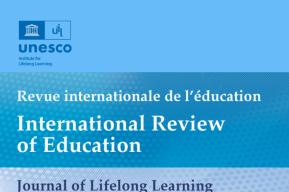News
Costa Rica leads session on advances in tsunami warning systems and other coastal threats in the Caribbean and adjacent regions

The 16th Session of the Intergovernmental Coordination Group for the Tsunami and Other Coastal Hazards Warning System for the Caribbean and Adjacent Regions was held on April 25th in Costa Rica. At the high-level meeting, Caribbean countries reported on the actions taken since the last meeting to mitigate, monitor, detect, and evaluate tsunami risks and to prepare communities for these disasters in the region.
The "Tsunami Ready" initiative was introduced during the session, with the goal of building resilient communities through awareness and preparation strategies that protect lives, livelihoods, and property from tsunamis in different regions. Prevention and preparedness to reduce vulnerability and prevent loss of human life as a first priority and material damage as a second guide decision-making and activities on the coasts.
Prevention and preparation to reduce vulnerability and prevent loss of human lives as the first priority, and material damage as the second, guide our decisions and activities on the coasts.
UNESCO Regional Director in San José, Alexander Leicht, emphasized that coastal areas face other risks from climate change, such as sea-level rise, increased frequency of extreme hydro-meteorological events, and often unplanned development.
The meeting was attended by high-level officials such as Silvia Chacón-Barrantes, President of the ICG/CARIBE-EWS, Francisco González, Rector of the National University (UNA), and Rafael Gutiérrez, Vice Minister of Environment.
The UNA Rector reiterated the university's commitment to scientific research serving communities and highlighted the importance of such spaces for strengthening links between countries, increasing inertia, and continuing to contribute to such an important topic for the region.
In addition, Silvia Chacón-Barrantes referred to the importance of holding the meeting and how it strengthens capacities in the management of warning systems, transferring this capacity improvement to prevention and preparedness in different coastal communities.
The meeting will continue until April 28th and delegations from countries such as Barbados, Cuba, Dominica, France, Venezuela, Saint Lucia, Haiti, the Dominican Republic, Costa Rica, Honduras, Mexico, Panama, and the United States are participating.
Through the Intergovernmental Oceanographic Commission of UNESCO's specialized unit on tsunamis, UNESCO contributes to the Decade of Ocean Science for Sustainable Development, in particular, the advances of Agenda 2030 and commitments to SDG 14 "Life below water".
Share
About the authors









